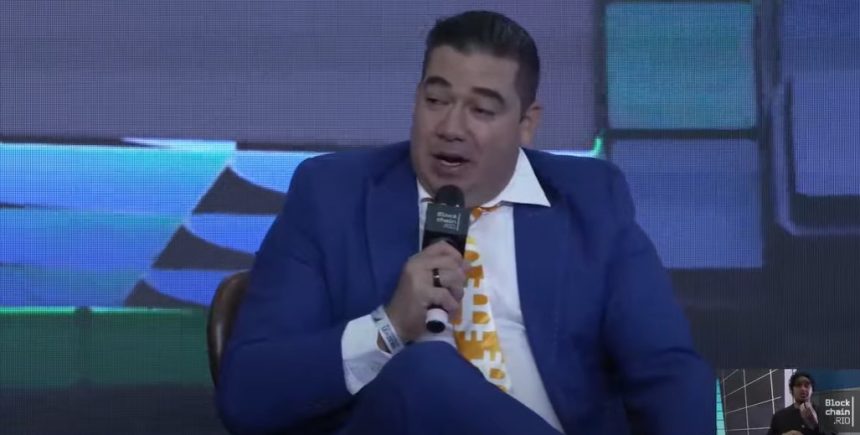In a speech at Blockchain Rio 2025, Juan Carlos Reyes, chairman of El Salvador’s Nationwide Digital Belongings Fee (CNAD), revealed that Salvador is among the the reason why it’s a world reference within the regulation of cryptocurrency.
“Getting a license in El Salvador is like graduating from Harvard College, and it is best to realize that,” Reyes stated. “They perceive that we’re centered on creating the most effective guidelines and finest supervision for our digital belongings.”
Regulation consultants defined that his group’s focus combines a long time of expertise in monetary supervision with important technical coaching in cryptocurrency. He emphasised worldwide cooperation as a pillar of his coverage.: “Digital belongings don’t have any geographical boundaries and supervision shouldn’t have them.”
In that context, he reported on a current tour of ten nations and introduced that El Salvador had established agreements with entities such because the U.S. Inventory Alternate and Securities Fee and the Brazilian Federal Police. «The legal believes that he can switch the belongings with out detection, however all tokens with criminal activity are marked. We all know the place they’re and who commerce them».
Whereas El Salvador has established strict requirements, Nations with bigger ecosystems, reminiscent of Argentina and Brazil They face the problem of integrating extra various actors with out compromising authorized compliance.
On the second day of the occasion, Roberto Silva of the Nationwide Securities Fee (CNV) of Argentinashared the panel Otto Robo, president of Brazilian CVMand Juan Carlos Reyes himself. The main focus was on the assorted regulatory methods adopted by nations to accompany the evolution of the area’s ecosystems.
From an Argentinean perspective, Silva introduced the challenges his administration faces in implementing a tokenization regime in a fancy political context.
“We do not know if tokenization is the longer term, however that is true — and it is very potential — we do not wish to be behind,” stated a specialist on the blockchain Rio 2025 stage.
Given the dearth of legislative instruments, CNV selected a artistic strategy as Javier Mairey’s authorities does not have a majority in Congress. «I known as my authorized counsel and defined the restrictions we had. We accepted them, however determined to maneuver ahead with the identical factor,” Silva stated.
As reported by Cryptootics, The company has launched a regulatory sandbox that units correct phrases for issuing digital values and negotiating. Every machine should be in licensed or accounting format and might solely function in a market that has already been accredited by means of registered intermediaries.
This isn’t a discretionary choice course of, however a one-year testing interval, though it emphasised the size of the CNV. Silva stated that if the mannequin works, new reforms might be launched and even laws formalizing the administration.
Steady dialogue to realize a unified market
On the Brazilian facet, Ottorobo emphasised the significance of getting ready laws from fixed dialogue with the market. “In CVM, our actions on digital belongings usually are not based mostly on a single particular occasion or mandate, however on a mix of inner and exterior elements that affect the integrity and evolution of the capital market,” he defined.
For the wolf, The secret’s to keep up a structured mannequin that enables changes to every regulatory initiative In response to ecosystem suggestions.
«It is a puzzle-like collaborative effort the place every of them delivers his work. We hearken to all of the actors and construct collectively,” he summed up.
In relation to this final level, Roberto Silva defined that Argentina has regularly adopted an strategy to regulating digital asset providers (PSAV) suppliers (PSAV).. First, the primary file was established permitting each native and overseas market actors to be recognized and ordered. Progress has since been made with stricter laws within the implementation course of.
Subsequently, the CNV head emphasised the significance of offering affordable time for companies to adapt to new necessities, acknowledging that regardless of the difficulties, this course of has proven important advances in formalising the sector.
«We approached it in two steps. First, in March final 12 months, we established a file that required 165 folks to be registered. The quantity is made up of 12 folks and 153 firms, of which 46 are foreigners. This registry is aimed toward each native and worldwide companies. Subsequent, we begin working with laws. We are going to maintain public consultations and can finish laws in March of this 12 months. The laws will come into full impact within the second half of 2025, however this 12 months they’ve given companies to satisfy strict registration necessities »
Roberto Silva, head of the Argentina Nationwide Securities Fee.
Relating to the particular progress of the method, Silva reported that the primary deadline to win on July 1 nonetheless has a stability between the primary 12 registered people. For Argentinian firms, greater than 50 of the 107 registered firms have already met the necessities, with the ultimate figures identified within the coming days.
Moreover, out of the 46 overseas firms, 43 preserve lively data after three cancellations. “Briefly, I believe we have now a substantial variety of 80-90 registered firms,” the knowledgeable concluded, highlighting progress in direction of better formalization and regulation of the Argentine marketplace for digital belongings.
Ottorobo defined that Brazilian CVMs have adopted a practical strategy as an alternative of making a particular regime of digital belongings. As detailed, If the machine meets the authorized traits of worth, it falls below the jurisdiction of CVM.whatever the expertise that helps it.
«The collaboration with the Brazilian Central Financial institution, the IRS and COAF are elementary, particularly within the struggle towards corruption and arranged crime. Our priorities are a risk-based strategy, bearing in mind the dimensions of our traders,” he concluded.
The desk reveals that though roads are various, Latin America is heading in direction of a sturdy and controlled future the place cryptocurrencies are not guarantees, however built-in monetary infrastructure.


